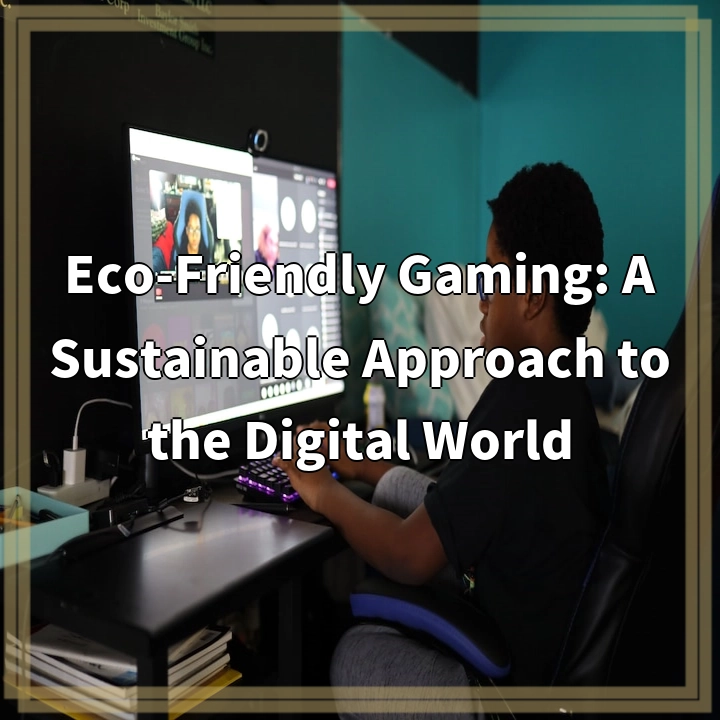
What is Eco-Friendly Gaming?
Eco-friendly gaming refers to the practice of incorporating sustainable and environmentally-conscious elements in the gaming industry. This approach aims to minimize the negative environmental impact caused by gaming activities, including the production, distribution, and disposal of gaming hardware and software.
Real-World Problems Associated with Eco-Friendly Gaming
While the gaming industry continues to grow rapidly, it also faces several environmental challenges. Here are some of the key issues that need to be addressed:
1. Electronic Waste
Gaming consoles, computers, and other gaming hardware contain toxic substances that can harm the environment if not disposed of properly. The improper disposal of electronic waste contributes to pollution and poses health risks to nearby ecosystems and communities.
2. Energy Consumption
Gaming requires significant amounts of energy, both for playing and for powering the hardware. This energy demand puts a strain on the electrical grid and contributes to greenhouse gas emissions, particularly if the energy source is fossil fuel-based.
3. Resource Extraction
The production of gaming consoles and hardware requires the mining and extraction of scarce resources, including metals and minerals. Unregulated extraction practices can lead to environmental degradation, deforestation, and loss of biodiversity in mining areas and their surrounding ecosystems.
4. Packaging Waste
The packaging materials used for gaming products, such as plastic cases and cardboard boxes, generate significant amounts of waste. Improper disposal and ineffective recycling processes contribute to the accumulation of plastic in landfills and natural environments.
5. Digital Distribution Challenges
While digital distribution of games reduces the need for physical production and packaging, it brings along its own set of challenges. The energy required to power data centers and transmit large game files, along with the carbon footprint of server infrastructure, can still contribute to environmental impacts.

Solutions to Eco-Friendly Gaming
1. Responsible E-Waste Management
Efforts should be made to promote the proper disposal and recycling of gaming hardware. Manufacturers can implement take-back programs, where old devices can be returned and recycled responsibly. Increased awareness among consumers about e-waste recycling options is also necessary.
2. Energy Efficiency Measures
Game developers and hardware manufacturers can prioritize energy efficiency by designing consoles and devices that consume less power during gameplay. Encouraging gamers to adjust power settings, use energy-saving modes, and turn off devices when not in use can also help reduce energy consumption.
3. Sustainable Materials and Design
Manufacturers should explore the use of more sustainable materials in the production of gaming hardware. This could include utilizing recycled or biodegradable materials and implementing sustainable manufacturing processes. Designing products for longevity and easy repair can also reduce the need for frequent upgrades and replacements.
4. Minimizing Packaging Waste
Efforts should be made to reduce the amount of packaging used for gaming products. Using eco-friendly materials for packaging, such as recycled cardboard or plant-based plastics, can help minimize waste. Encouraging digital manuals and game updates can also reduce the need for physical packaging.
5. Renewable Energy for Digital Distribution
Promoting the use of renewable energy sources, such as solar or wind power, for running data centers and server infrastructure can significantly reduce the carbon footprint of digital distribution. Game platforms can also implement energy-efficient technologies and optimize data transmission processes to further minimize energy consumption.















